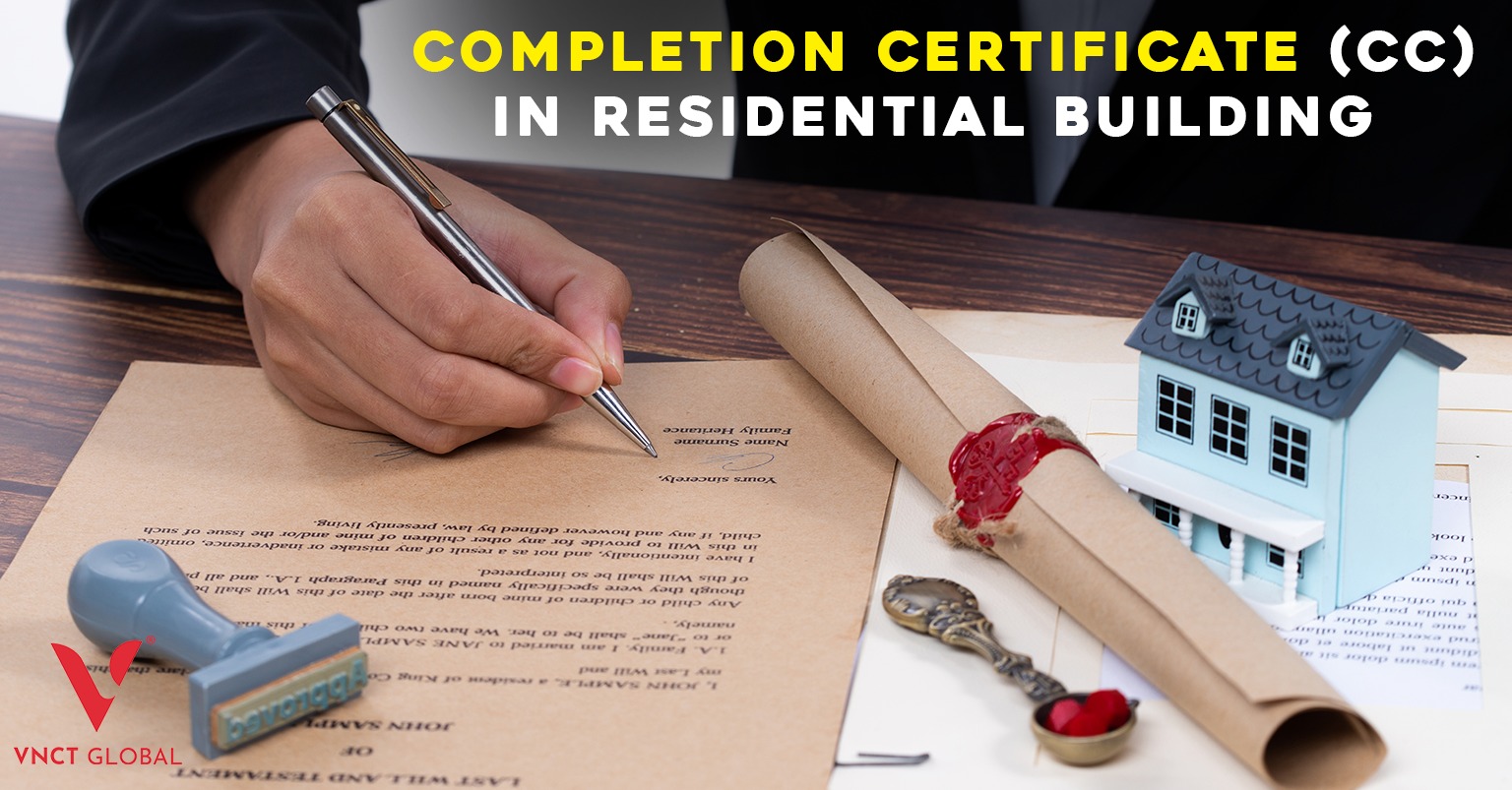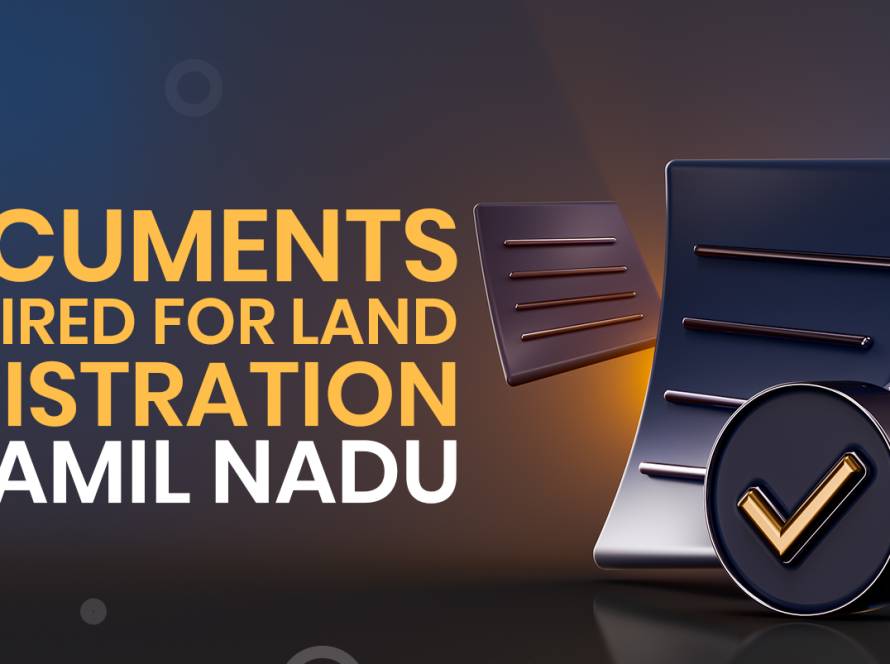What is Completion Certificate (CC)?
Completion Certificate (CC) in Residential Building is a vital document that certifies your villa or apartment is built according to approved plans and safety standards. Whether you’re eyeing one of the best villa developers in india or considering villas in Chennai, villas in Madurai, villas in Coimbatore, or even luxury estates like Brookside Residences Palm Beach, Creek Residences, Park Villas, and Ocean Drive Villas, obtaining your CC is crucial.
In this article, you’ll also learn why India is the Best Destination for Holiday Homes a phrase we’ll revisit to spotlight lucrative NRI investment opportunities. Plus, discover how VNCT Global supports NRI clients from application to ceremony.
Why is Completion Certificate Important?
- Legal Occupancy: You’re not allowed to occupy the villa without a CC.
- Home Loan & Resale Value: Banks and buyers require it.
- Safety & Compliance: Confirms your property from Best Destination for Holiday Homes to urban villas is built to standard.
Who Issues Completion Certificate?
The Completion Certificate (CC) is issued by the local municipal corporation, development authority, or the local panchayat office, depending on where the property is located.
For example:
- In Chennai, the Greater Chennai Corporation (GCC) or Chennai Metropolitan Development Authority (CMDA) is the issuing authority.
- In Madurai, it’s the Madurai Corporation or Local Planning Authority (LPA).
- In Coimbatore, the Coimbatore City Municipal Corporation (CCMC) or DTCP (Directorate of Town and Country Planning) handles it.
These authorities will issue the CC only after conducting a physical inspection of the property to ensure it complies with the approved building plan and safety norms.
For large gated villa projects like Palm Beach, Brookside Residences, or Park Villas by VNCT Global, the completion process is handled professionally, with all documentation prepared and coordinated directly with the issuing authority. This makes the process smooth especially for NRIs who may not be available to follow up in person.
When is Completion Certificate Required?
- Before moving into your villa or home.
- To secure utilities like electricity and water.
- During house resale or renting.
Steps to Obtain a Completion Certificate
Getting a Completion Certificate involves a series of formal steps. Here’s what the typical process looks like:
1. Submission of Application:
The builder or property owner applies to the local municipal or development authority with a formal request.
2. Document Verification:
The authority checks all relevant documents like building permits, approved plans, structural safety certificates, etc.
3. Site Inspection:
A field officer inspects the property to ensure everything matches the approved design and follows building standards.
4. Compliance Check:
A detailed compliance report is prepared based on safety, setbacks, and usage of space.
5. Issuance of Certificate:
Once everything checks out, the Completion Certificate is granted, officially marking the end of the construction phase.
VNCT Global handles all these steps on behalf of our customers, particularly NRIs who may not be present to follow up in person.
Documents Required for Completion Certificate Application
The following documents are generally required when applying for a Completion Certificate:
- Approved building plan and building permit
- Structural stability certificate
- Photographs showing the completed construction
- NOCs from relevant departments (Fire safety, Environment clearance, etc.)
- Proof of electricity and water connection
- Copy of land title deed
At VNCT Global, we prepare and compile all these documents for our buyers making the process transparent and hassle-free.
Difference Between OC and CC
- CC confirms structural completion.
- Occupancy Certificate (OC) assures the building is safe for habitation.
- CC is obtained first; OC follows once utilities like water and septic are in place.
Checking Completion Certificate (CC) Online
Most municipalities in Chennai, Madurai, and Coimbatore allow applicants to:
- Visit the official website : https://www.cmdac`hennai.gov.in/
- Enter application number or property details
- Track inspection and CC issuance status
What is Provisional Completion Certificate?
A Provisional CC is issued when developers are awaiting minor formalities such as utility connection or handing over of infrastructure. It allows limited occupation till full CC is received.
Consequences of Not Having Completion Certificate
Skipping the Completion Certificate can lead to serious set-backs both legal and financial.
- You may face legal fines or penalties – Without a valid CC, your property is considered unauthorized, and local authorities can impose fines.
- Risk of vacate orders – Occupying a home without a CC can lead to eviction notices from municipal bodies.
- Trouble with resale, loans, or renting – Most banks won’t process home loans or insurance for properties without a CC. Future buyers or tenants may also back out due to missing compliance.
In short, not having a Completion Certificate can block your ability to fully enjoy or benefit from your property.
Common Mistakes to Avoid When Applying for CC
- Submitting incomplete documents.
- Not paying outstanding taxes or dues.
- Ignoring minor defects during final inspection.
- Missing inspection timelines
VNCT Global & NRI-Friendly Support
- Are you an NRI planning to invest in villas in Chennai, villas in Madurai, or villas in Coimbatore? VNCT Global simplifies the process:
- Advises on choosing the Best Destination for Holiday Homes.
- Coordinates with trusted names like Palm Beach and Park Villas.
- Manages documentation, municipal coordination, and site inspections.
- Offers remote end-to-end support just contact us VNCT Global, and we handle everything!
With a robust team on the ground and legal expertise, VNCT Global bridges the distance and ensures your property gets its Completion Certificate (CC) in Residential Building without hassle.
Conclusion
A Completion Certificate isn’t just another document it’s a key part of making your homeownership journey stress-free and legally sound. Whether you’re investing in a premium villa like Ocean Drive Villas or settling into a serene space at Brookside Residences, following the right legal steps offers lasting peace of mind. For NRIs looking for a trustworthy real estate partner in India, VNCT Global ensures that every detail is handled with right from approvals to the final handover so you can invest with confidence and ease.
FAQs About Completion Certificates
- How much does it cost to apply for a Completion Certificate?
The cost can vary depending on where your property is located. Each municipality or local authority has its own fee structure. If you’re unsure, VNCT Global can help you get a clear estimate based on your property’s location. - How long does it take to get a Completion Certificate?
Generally, the process takes anywhere from 30 to 90 days. This depends on how quickly the inspections are scheduled and how busy the local municipal department is at the time. - Is it okay to move into my villa before I get the CC?
Not really. Moving into a property without a valid Completion Certificate is against the rules. It could lead to legal trouble, including fines or even a notice to vacate the home. - What makes VNCT Global a good choice for NRIs?
We make the process simple, especially for NRIs who may not be in the country. From paperwork to local authority coordination, we take care of it all making your property journey smoother and stress-free. - Do I really need a Completion Certificate to sell my property?
Yes, you do. Whether it’s a buyer, a bank, or a legal officer involved in the sale, everyone will ask for the CC. It’s a key document for resale transactions. - What happens if the building doesn’t pass inspection?
If the inspector finds any issues, they’ll share a report with details on what needs fixing. Once those corrections are made, a re-inspection will be done before the certificate is granted.





